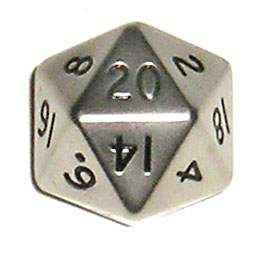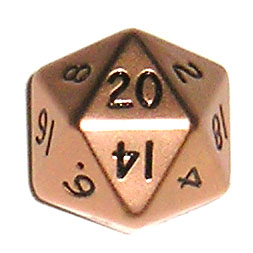SombreNote DM
Stark DM ShadowRun B Kallistier Intelligent_Life Staff oldEsplanade WhatNot Enlightened Esplanade
   Offline
Offline

The DM
Posts: 613
Ann Arbor, MI
|
"This incarnation of the game is designed to be faster paced, ( in terms of individual action resolution, not necessarily task resolution) with a more even balance of character effectiveness. "
Well from your original post you mentioned that it is how we use the systems that really matters.
By that note let me tell you how D&D 4th edition is BEST played. Not how it CAN be played because we all know game systems are somewhat flexible.
All combat should be "front and center" combat.
- There are a million reasons for this. The game was designed around balance and easy of play. Nearly ever combat strategy other then "stand and hit" has no play in this game. Everything environmental detail changes effectiveness by + or - 2. Grapple anyone? This game is played as if you are playing with a set of miniatures. Game rules have very little else to say about it within combat.
All you should only ever fight monsters.
- The game is literally designed to fight monsters. The game designers even say this. This affects roleplay also because the game does not do well to facilitate a more complex plot. You kill... monsters. Either you do it for yourself, or someone else, either way the monster is what is getting dead.
You should never fear other classes, just higher levels.
- I am sorry but the fact the the game is so balanced can be a bad thing. I remember when fantasy was fantasy and shit could happen, and people could cast stuff you just did not know about or hence prepare for. All realism in a 4th edition world is gone, (or need a ton of work for the DM to create) as long as your party is the right level you will win. It used to be that people had tricks up their sleeve, or the monster that seems easy can really put a damper on your day because of the game mechanic. Not anymore; dumb simple rules are the law.
Do not expect any game realism.
- The grit of low levels is gone. You start the game powerful. Everything you can think of from wounding yourself to having dirt in your eye means a - or + 2 bonus.
D&D 4th should maintain all superficial character relationships and characters.
- This is harder to gather, but when you take everything away from character creation and all the nit picky details that a character is a being with body organs, dietary needs, and physical limits, it really takes the real life out of the game. Not to mention all the before topics. AND Skills.... What REAL person (or at least a person a play could understand or roleplay) has skills ANYTHING like 4th edition. "O I am sorry, you can't dabble". They are designed for doing one thing and that is to prepare to kill shit. There is not even performance or craft!! Why? Because you can't kill something with it. And it does not get you information about how to kill thing.
I have seen this game played with 5 different groups. Every time I see it played it looks to me like the players are devolving into high school kids. They proceed to just roam around trying to kill stuff for some princess whom they have no earthly reason to care about in character, but they manifest caring just so they have a reason to kill.
It is true that ANY game could be like this, but 4th does THE MOST to make it damn near a requirement.
"Play D&D 4th? Why not just buy a set of miniatures and act like there is a reason to kill the RED team."
|




 Home
Home

 Help
Help

 Search
Search

 Login
Login

 Register
Register





 Pages: 1
Pages: 1

